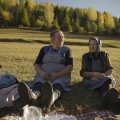Spring 2019 – Academia: science, policy, management
Edited by Ágnes Matuska
Daniel Fairfax: We Live in a World of Images: Interview with Dana Polan
Original interview in English: http://sensesofcinema.com/2017/film-studies/dana-polan-interview/
Daniel Fairfax: The Cinema is a Bad Object: Interview with Francesco Casetti
Original interview in English:
http://sensesofcinema.com/2017/film-studies/francesco-casetti-interview/
Daniel Fairfax: A Hybrid and Composite Field: Interview with Vinzenz Hediger
Original interview in English:
http://sensesofcinema.com/2017/film-studies/vinzenz-hediger-interview/
Mónika Rusvai: Possibilities and difficulties in the scientometric modelling of the humanities
The article examines the possibilities of scientometric modelling of the humanities. After introducing the situation of the humanities as a field of discourse, it enlists the problems one encounters when trying to make this field measurable and mappable. It explains and provides examples for the latest trends in scientometrical analysis within the humanities, pointing out two main trends. One being the remodelling of scientometric tools originally designed for sciences to fit the humanities, while the other is creating a special methodology for the humanities, taking into consideration its specificities. The study highlights the relevant Hungarian studies carried out in the field and points to the possible venues of future research.
Richard Grusin: The Dark Side of Digital Humanities: Dispatches from Two Recent MLA Conventions
Sensing a growing divide between the two, tightly interrelated fields, the author discusses questions related to the future of digital and mainstream or traditional humanities. He proposes to explore the causes of the intensification of the economic crisis in the humanities in higher education, in parallel with the emergence of digital humanities, emphasizing the intertwined nature of the two disciplines’ prospects. Since, as he puts it, as the digital humanities can help to redefine our traditional humanistic practices of history, critique, and interpretation, these humanistic traditions can help to refine and shape the direction and critical focus of digital humanities and its place in the institutional infrastructure of the academy.
The article focuses on the significance of disciplinary boundaries and the contemporary relations between different fields of studies. Its aim is to trace the emergence (and understand the nature) of the “Babelized” state of research, especially concerning the relations of the natural sciences and the humanities, which are traditionally conceptualized as being either ignorant of or hostile to each other. The author examines the recent applications of cognitive and neurosciences in literary theory as an example.
The article sketches the dilemmas entailed by the three main perspectives of education science (social, scientometrical, and pedagogical). First, it highlights the mutual effects of social changes on the one hand and reforms in education science on the other; second it discusses scientometrical problems while also bringing up related ethical issues influencing the practice of scholarship and research (e.g. ’p-hacking’ and predator journals); and lastly, it enlists diverse groups of interest (that of teachers, students and parents) that are shaping the future of education science.
Przemysław Hensel – Beata Glinka: Przemysław Hensel – Beata Glinka: In search of legitimization?
This paper explores selected aspects of legitimization of organization theory. It begins with characterizing organization theory as a field of research facing conflicting internal and external expectations. Departing from that vantage point, we delve into the description of factors influencing the legitimization processes. In the latter part of the article, publishing practices (including peer review) and their impact on the legitimization process are explored, while we also discuss different types of discourses (scientific and popular) within organization theory. In the conclusion, we outline the impact of the existing practices on both the quality of research and the development of organization theory.


